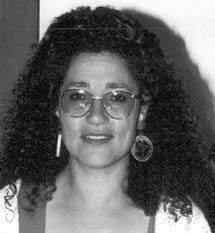When tomorrow becomes yesterday -
you've got a dose of Y2K
A friend of mine in the computer industry
sent me the following piece by email recently.
"I hope I haven't misunderstood your instructions. Because to be
honest, none of this Y to K problem makes any sense to me.
At any rate I have finished converting all the months on the company
calendars so that the year 2000 is ready to go with the following new
months:
Januark, Februark, Mak, Julk.
My friend goes on to point out that only the computer
industry would shorten 'year 2000' to Y2K. It was this kind of thinking
that caused the problem in the first place!
And another thing. Only the computer industry with its desire for exaggeration
and self-importance would call it the 'millennium' bug. The problem
was caused by programmers saving a tiny bit of work by putting just
'85' in the date code of their work rather than '1985'. Why no-one twigged
sooner, when the end of the century was a mere twenty or so years off,
shows the single-mindedness of computer types.
Anyway the point is, it's a 'centurion' bug really but it doesn't have
the same dramatic ring to it.
There is little doubt that computers are changing the way many of us
live our lives. What is not so clear is whether things are getting better
or worse.
I reckon 'personal' computers have made twice as much work for half
as many people - and we've only had the dratted things for fifteen or
twenty years at the most.
Remember what offices used to be like? If you needed a letter typed
you wrote it out, gave it to the office typist and back it came. Small
errors were fixed with white-out and seriously redrafted letters were
re-typed. Carbon paper made the copies. The point is, after drafting
the letter a worker was free to get on with some other work.
Look in the modern office, both private and public sector. See all the
workers typing their own letters, sometimes with two fingers; see them
spending hours hassling with the spell checker, or the print spooler,
or closing files for morning tea and then wondering where on earth they
went. See the other workers clustered around one machine, each with
a different solution to the problem. See the workers despairing over
constant system or application updates which propel them back into helplessness.
See the workers give up and launch 'Solitaire' - at least it still works.
We see articles in the newspapers or on TV about how the world is dividing
into two camps; the information rich with access to computers, and the
information poor without.
I use computers every day for desktop publishing and other electronic
pursuits, I understand them fairly well - but where is the 'information
richness'?
Computer buffs may beg to differ, but after all this time I still get
nearly all my information riches from reading, then from television
and only the very smallest amount from my computer.
One of the challenges for the next century, or just the future if you're
not into the Christian/decimal/anniversary jive, is to expose the myth
of the all-important personal computer with its ability to empower and
enrich our lives.
What we have in reality is a faddish games machine with an endless capacity
to gobble up hard-earned riches in the never ending spiral of upgrades.
And don't forget that most of them are just electron spitters to which
we cram our faces and look at intently for hours on end. It may turn
out that staring at a computer screen for twenty-five years, more or
less from birth, makes you insane or causes your eyes to drop out -
we wouldn't know yet because we haven't had them long enough.
So there you go. Perhaps I'll write the next Barkly News Pictorial in
long-hand with a nice Parker fountain pen, stick on the pickies and
photocopy the whole lot.
Paul Cockram
Textile artist to visit Tennant Creek
Luncheon, workshop and exhibition to celebrate International Women's
Day.
Philomena Hali is one of central Australia's best-known textile and
bush basketry artists, working in a variety of techniques over many
years. There will be a lunch with Philomena at the Tennant Creek Hotel
in Paterson Street. The lunch begins at noon, with meals available from
the a la carte menu. To book, phone the Tennant Creek Hotel on 8962
2006.
Philomena will also conduct a silk paper making workshop on Sunday 7
March and a basketry workshop from 2 pm to 5 pm on the Monday, both
at the Crafts Council Studio at the rear of the NT Training Centre in
Staunton Street.
Philomena will also speak at the Emergence exhibition on Monday evening,
showcasing the works of local women artists in a variety of mediums
at Murranjirra Aboriginal Art Gallery in Paterson Street. The exhibition
opens at 6.30 pm.
For further information about either event, phone Frederique Mouchet
on 8962 1252 or 8962 1001.

Philomena Hali.